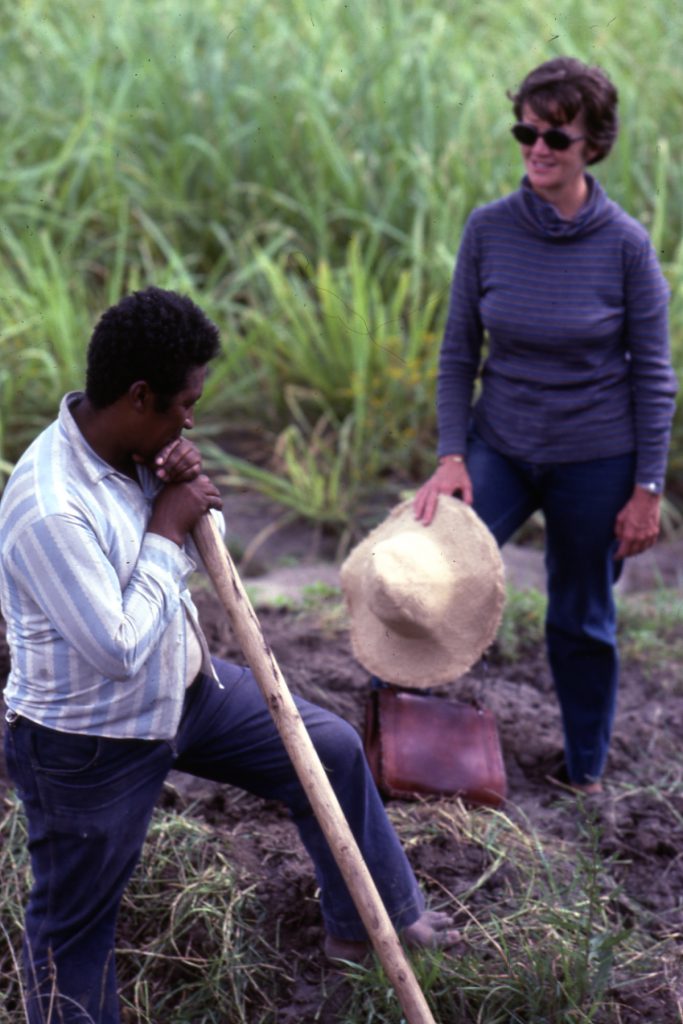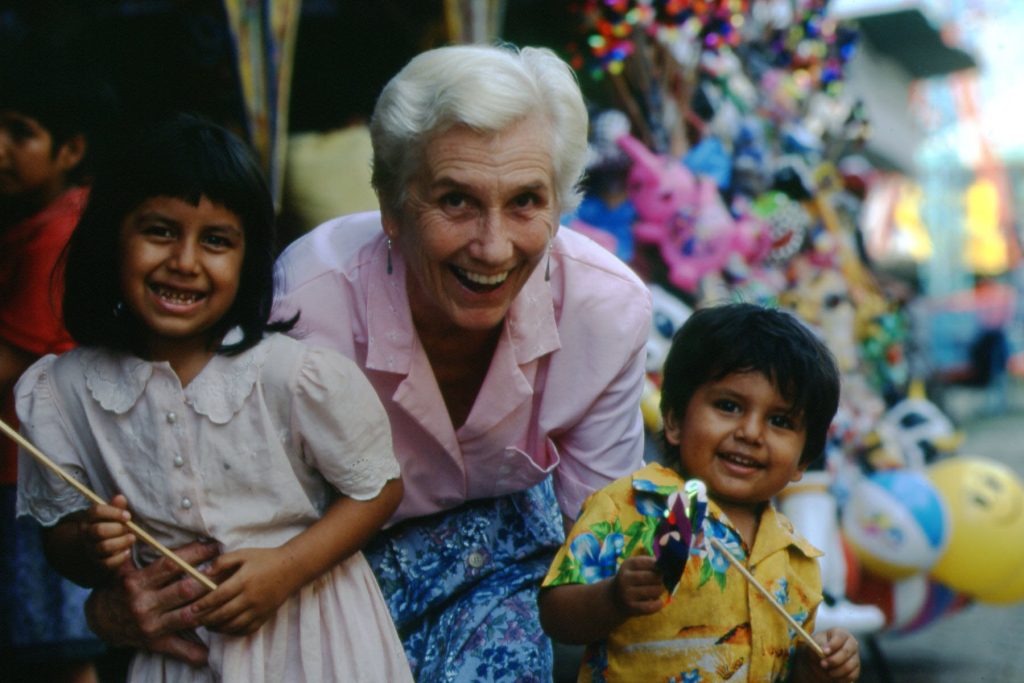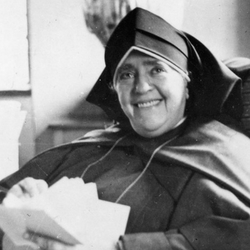From an Interview with Sister Elsie Monge, M.M.
By Sr. Theresa Kastner, M.M.
At 80 years of age Sr. Elsie is still passionately involved in struggles to achieve basic human rights for abused and dispossessed peoples, especially in her native Ecuador. She has been subjected to death threats and expelled from another Central American country where she worked in her earlier years in mission in Maryknoll.
Q. Tell me a little about your ministry right now – your current commitments.
In the Ecumenical Commission we have been working for 33 years now and we have tried to respond to the reality as the more important human rights issues come up. One of the big issues now is that of mining, there’s a mining boom in Ecuador. Big transnational companies come and when they come they just clear the land – that means vegetation, bio-diversity and people. Its open pit mining of gold, copper especially and some silver and some other minerals. There’s really no consideration for the people whatsoever. They get these big territories and it’s theirs, no matter who has been there from time immemorial! There’s no consideration given to trying to find the people other places to work – you know there are farmers, Indian communities, peasant communities and they just have to go; either by some devious mechanisms, for example offering them some money. But it’s never really a norm, the amount is very indiscriminate. It depends on how much the company wants to do, you know, how much the family or community knows about what their rights are. And then, of course, trying to find a place for people to go is not the companies’ problem. So we work with people who are affected.
Q. How do the people find out about you and come for help?
Well I guess, we work with rural communities in this part of the country and they know that human rights is what it is all about – trying to help the people organize themselves in order to be able to demand what are their rights. And this is known among the communities, not necessarily those that are affected now, but in the area, because of all the years we have been present.
Q. What do you do with the communities you work with?
What we do with the communities is help them have workshops and courses to help them better their living conditions but also to know what their rights are vis a vis the government. Because, being Ecuadorian citizens the government has the obligation of looking after them and giving them basic needs like education and health. So to see that as a very good-heartedness of some president or some minister, that’s what it is played up to be – but first of all it is the people’s money and it is their right! It is not a gift! So we try to get that kind of consciousness and also to respect everyone’s rights. You have to demand but you also have to live and respect other’s rights. You have to negotiate.
Q. What give you the courage to be there when everybody else is terrorized and you and your group are standing out there speaking, at great personal risk? What gives you the courage to do that?
Well I don’t know, I think there is so much injustice. It’s not that you are going to do great things, but if you don’t do those little things then they will be worse off. People are paralyzed, so someone has to do it. I think this is part of the liberation message of Christ. That’s what he did. He didn’t shy away from saying or doing something. I think that is part of it – our commitment.
Q. What would you like to say to our donors and sponsors who support us?
I think it’s very important for Maryknoll and for us who are out in the field with groups, people who are excluded, whose rights are violated, it’s very important – first for solidarity with people from the first world, people who can bring hope to those who have a lot of potential but don’t have the means to do things. I think it’s very important that people from the developed world reach out their hands to the developing world. We do tell people that there are campaigns and that Maryknoll reaches out to people who want to empower them. That’s the most important thing, to empower those people to stand up for themselves, to be architects of their own destiny.
DONATE NOW
 Fried Empanadas (Guatemala)
Fried Empanadas (Guatemala)
Pastry:
- 1 cup flour
- 1/2 tsp. salt
- 1 tsp. baking powder
- 2 tbs. shortening
- 1/3 cup milk
Filling:
- 1 lb. ground meat
- Black pepper to taste
- 3tbs. tomato paste
- Salt to taste
- 1 tbs. shortening
- 2 tbs. chopped onion
- 1 tbs. chili powder
Heat shortening in a large skillet, and sauté meat and onion until brown. Add tomatoes, chili powder and season with salt and pepper. Cook for 15 minutes. Set aside.
To make pastry, mix together flour, salt, baking powder, shortening and milk. Knead as for biscuits, but roll out dough paper thin. Cut into large round circles.
Place a spoonful of meat mixture on pastry, fold over and press edges together with a fork.
Fry rapidly in deep fat until brown.
Serve hot. Serves 25.
DONATE NOW
Prayer Corner:
God of all comfort
we thank you for the joy and blessings this year.
Open our hearts to your gift of Mercy.
May your Mercy be a wellspring of love,
May the God of Mercy bless us with
wisdom and understanding.
May our hands be your mercy,
feeding the hungry and the poor.
May we forgive others as you have forgiven us.
May we love others as you love us.
Sister Noel Devine, M.M.
 Words of Wisdom
Words of Wisdom
“If we can be sure that the smile on our lips is God’s joy that is being shown forth; if God’s charity is in our ears and on our tongue, both of which we seal against gossip and all untruth and scandal, but have them open to the truth, and justice and peace; if God’s solicitude is in our thoughtfulness of others; if we have God’s simplicity which attracts souls, and God’s gentleness which knows neither subterfuge nor hypocrisy, then, truly, we are reflectin g the love of Christ.”
—Mother Mary Joseph, 1932



